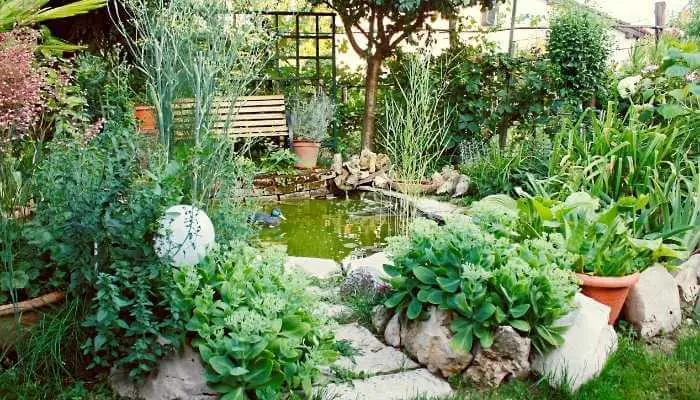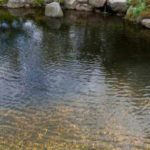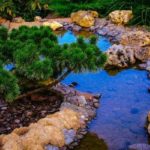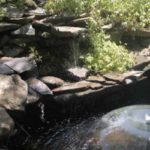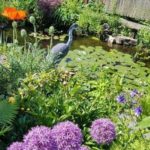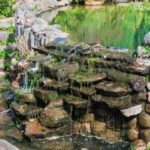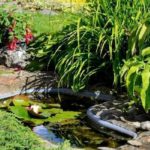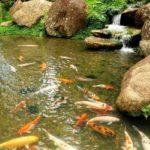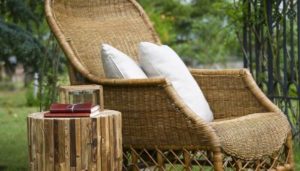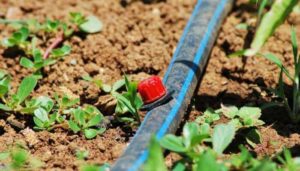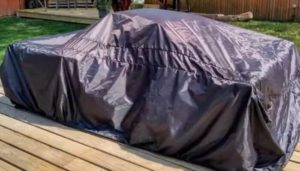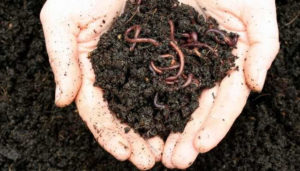When you have a garden for growing crops, vegetables, herbs, or well, anything, the world changes. You begin looking for beneficial additives and fertilizers everywhere you go. Scraps from the table? Will this benefit my garden? Leftover coffee grounds? Will this benefit my garden? Run-off water? Can I use that for my garden? Having a pond is no different.
Having both a garden and a pond can lead to a symbiotic relationship of sharing resources and benefits. The soil you dig up from your garden can often be used in pond planting. Pond sludge and pond water are perfect for use in your garden.
I’ve already covered the pros and cons of having a garden pond in your backyard, but let’s really dig into the benefits that can come from having a pond when you also have an actual garden growing plants.
Can I use garden soil for pond plants?
You can, but to be clear, most pond plants do not need soil to grow. These kinds of plants gather their nutrients from the detritus left on the bottom of the pond – dead leaves, fish waste, and even decaying fish food. So, if you really wanted to use garden soil to help with your water plants or plants around your pond, what do you need?
Living in North Carolina (specifically the piedmont for over a decade), I became accustomed to having to dig up the thick clay to mix it with more sandy and screened soils and composts to make better garden soil for growing vegetables. It turns out, that pond plants need water and need soil that not only holds water but can also keep the plant roots intact while in or surrounded by water. Clay is perfect for this.
Use the clay to plant the roots of the water plants in the containers you want to use inside your pond. You can leave it as-is, but if you plan on adding fish, you should then also cover the soil with a layer of gravel. Koi especially are known to rip apart any soil to get to tender roots.
Is pond sludge good for the garden?
Pond sludge aka the sediment that gathers at the bottom of the pond from decomposing plant matter and fish droppings is full of nitrogen, potassium, and phosphorous. Considering these elements are part of what makes up fertilizer for plants – it stands to reason that the sludge is good for your garden.
Pond scum and algae are living organisms that can help with the breakdown of other material when you put it into a compost bin. It’s best to mix the scum and/or algae with your normal vegetable waste from the kitchen along with coffee grounds and any fresh clippings you want to use.
I’ll include the suggestions I’ve collected for composting this material with other stuff for the best possible outcome:
- In layers, use 4 – 6 inches (10 – 15 centimeters) of carbon material first. This includes dead leaves, older composted vegetation, shredded paper, or cardboard.
- Next mix your algae or pond scum with scraps to make at least a 3 inch (7 ½ centimeters) layer.
- Add at least a 1 inch (3 centimeter) layer of good garden soil.
- Hose that down well with a slow shower from a water hose.
- You just keep layering it like a composting lasagna until you’ve got all your materials layered.
- Some people add straw or organic mulch to the top. That’s up to you.
- You need to let the heap sit for 24 – 48 hours. This will give it time to naturally heat up and begin the composting process.
- After that, you just need to turn the pile with a pitchfork or other garden tool once a week and make sure the compost feels moist but that it’s never damp or wet.
Once you have a good rich compost material made from pond scum, it can be used in all sorts of things – fertilizing and even making potting soil by mixing it with perlite or sandy soil.
Can I water my garden with pond water?
Absolutely! It’s actually a very good plan to place your pond at a higher elevation than your garden and run irrigation lines downward. You can let gravity work to send water to your garden when it’s draught season. A lot of people allow the overflow water from their rain-harvesting barrels to go to the pond, so it’s essentially the same water.
Think about it. Water in your pond goes through the nitrogen cycle. A healthy pond has plenty of that element and phosphorous as well. Those two elements are important in plant fertilizers. So when you water your garden with pond water, you are actually fertilizing as well as watering!
In conclusion…
I hope you learned something new about how a pond can also be beneficial to your garden. I tried to answer all of the questions I have been asked about this particular subject, but if you think of more, feel free to contact us and I’ll be happy to research and answer your questions!
